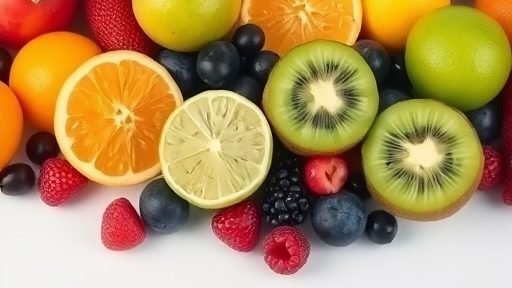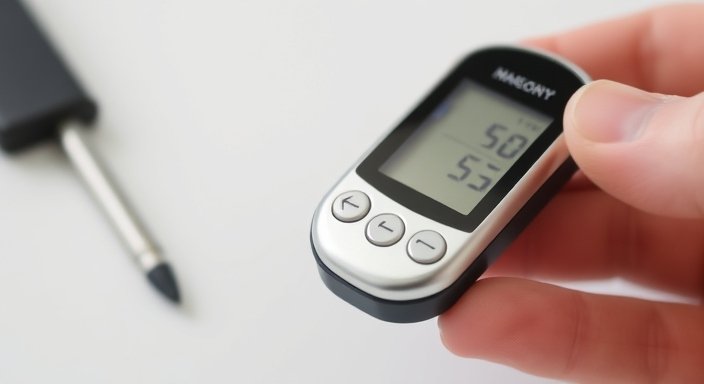Maintaining healthy blood sugar levels is essential for overall well-being, especially for those managing diabetes or prediabetes. While diet plays a significant role, incorporating specific fruits can be a natural way to help stabilize blood sugar. These fruits are not only delicious but also rich in nutrients and compounds that support blood sugar regulation. Let’s dive into eight fruits that can naturally lower blood sugar levels and explore what makes them so effective.
1. Berries
Berries, including blueberries, strawberries, raspberries, and blackberries, are among the best fruits for managing blood sugar. Packed with fiber and antioxidants like anthocyanins, berries help slow digestion and sugar absorption, preventing rapid spikes in blood sugar.
Studies suggest that consuming berries with meals can reduce post-meal glucose levels. Additionally, their low glycemic index (GI) makes them a perfect snack or addition to yogurt, oatmeal, or smoothies.
Key Benefits:
- Rich in fiber, which slows sugar absorption
- High in antioxidants that combat oxidative stress and improve insulin sensitivity
- Low glycemic index
2. Apples
Apples are another excellent choice for blood sugar control. They’re rich in soluble fiber, particularly pectin, which slows digestion and stabilizes blood sugar levels. Apples also contain polyphenols, compounds that reduce glucose absorption and improve insulin sensitivity.
To maximize their benefits, eat apples with the skin, as most of the fiber and antioxidants are concentrated there.
Key Benefits:
- High in fiber, especially pectin
- Contains polyphenols that enhance insulin sensitivity
- Convenient and portable for on-the-go snacking
3. Citrus Fruits
Citrus fruits like oranges, grapefruits, lemons, and limes are not only refreshing but also blood sugar-friendly. These fruits are low on the glycemic index and high in soluble fiber and vitamin C. The fiber content helps regulate sugar absorption, while vitamin C reduces inflammation and oxidative stress, common issues for those with elevated blood sugar.
When consuming citrus fruits, it’s best to eat them whole rather than drinking the juice, as juicing removes much of the beneficial fiber.
Key Benefits:
- High in vitamin C and antioxidants
- Contains soluble fiber for better sugar regulation
- Low glycemic index
4. Pears
Pears are a fiber-rich fruit, especially when eaten with the skin. This fiber helps slow digestion and sugar absorption, preventing sharp blood sugar spikes. Pears also contain flavonoids, which have been linked to improved insulin sensitivity.
Available in a variety of types and flavors, pears are a versatile and satisfying choice for maintaining stable blood sugar levels.
Key Benefits:
- High in fiber, especially in the skin
- Rich in flavonoids that support insulin function
- Naturally sweet yet blood sugar-friendly
5. Cherries
Tart cherries, in particular, are a fantastic choice for blood sugar management. They’re rich in anthocyanins, antioxidants that support insulin production and sensitivity. These compounds also have anti-inflammatory properties, which is beneficial since inflammation can exacerbate insulin resistance.
Tart cherries can be enjoyed fresh, dried, or as part of a low-sugar dessert.
Key Benefits:
- High in anthocyanins, which enhance insulin sensitivity
- Anti-inflammatory properties
- Low glycemic index
6. Avocados
Though not sweet, avocados are technically a fruit and are exceptional for blood sugar regulation. They’re rich in healthy monounsaturated fats and fiber, which help slow digestion and stabilize blood sugar levels. Unlike most fruits, avocados are very low in carbohydrates, making them a great choice for those aiming to minimize sugar intake.
Adding avocado to meals can reduce cravings and prevent blood sugar spikes, making it an excellent addition to salads, sandwiches, or smoothies.
Key Benefits:
- High in healthy fats and fiber
- Minimal sugar content
- Supports prolonged satiety and stable blood sugar
7. Kiwi
Kiwi is a nutrient-dense fruit packed with vitamin C, antioxidants, and fiber. Despite its sweet taste, it’s low in calories and has a low glycemic index, making it ideal for blood sugar management. The fiber in kiwi slows sugar absorption, while its antioxidants reduce oxidative stress.
This small but mighty fruit is perfect as a snack or a topping for breakfast dishes.
Key Benefits:
- High in vitamin C and antioxidants
- Rich in fiber for gradual sugar release
- Low calorie and low glycemic index
8. Stone Fruits (Peaches and Plums)
Stone fruits like peaches and plums are naturally low in sugar and contain bioactive compounds that may help reduce insulin resistance. When eaten with the skin, they offer additional fiber, which aids in blood sugar regulation.
These juicy fruits are a sweet yet healthy way to satisfy cravings without causing blood sugar spikes.
Key Benefits:
- Contains compounds that improve insulin function
- High in fiber when eaten with the skin
- Naturally low glycemic index
Tips for Incorporating These Fruits
- Pair them with protein or healthy fats, such as nuts or yogurt, for even better blood sugar control
- Eat them in their whole form to retain the fiber, which is often lost in juices
- Monitor portion sizes, as excessive fruit consumption can still impact blood sugar levels
Conclusion
Incorporating these eight fruits into your diet can be a delicious and natural way to support blood sugar balance. Whether you’re managing diabetes, prediabetes, or simply aiming for better health, these fruits offer a variety of nutrients and compounds that promote stable glucose levels. Remember, balance is key, and pairing fruits with other nutritious foods can enhance their benefits. Enjoy the natural sweetness of these fruits while supporting your health!
Sources
- “Berries and their Health Benefits,” National Center for Biotechnology Information (NCBI): https://www.ncbi.nlm.nih.gov/
- “Polyphenols in Apples and Their Health Benefits,” Journal of Food Science: https://onlinelibrary.wiley.com/
- “Citrus Fruits and Diabetes Management,” American Diabetes Association: https://www.diabetes.org/
- “Flavonoids and Insulin Sensitivity,” Journal of Nutritional Biochemistry: https://www.sciencedirect.com/
- “Anthocyanins and Their Effects on Insulin,” National Institutes of Health (NIH): https://www.nih.gov/
- “Avocados and Blood Sugar Control,” Harvard T.H. Chan School of Public Health: https://www.hsph.harvard.edu/
- “Kiwi and Diabetes Management,” International Journal of Food Sciences and Nutrition: https://www.tandfonline.com/
- “Stone Fruits and Their Impact on Metabolic Health,” Advances in Nutrition: https://academic.oup.com/




